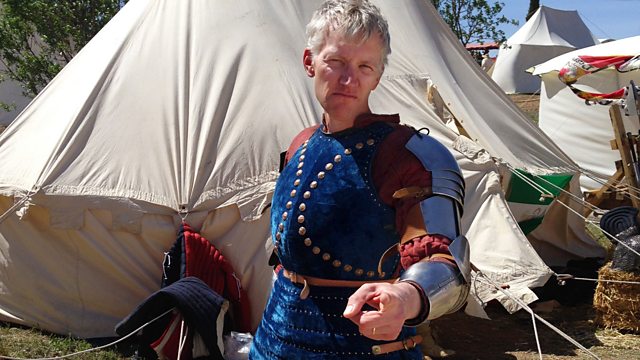20/08/2013
History magazine programme. Tom Holland is joined by archaeologist and historian Prof Francis Pryor, and Prof Alex Walsham, author of The Reformation of the Landscape.
Tom Holland is joined by archaeologist and historian Professor Francis Pryor and Professor Alex Walsham, the author of The Reformation of the Landscape.
Tom talks to Professor Lisa Brady from Biose State University in the USA to find out what we mean by environmental history and why it seems to be more popular across the Atlantic than it is in Europe. Professor Ian Rotherham takes us on a journey into England's lost fens and Helen Castor is in the wetlands of Somerset with Professor Ronald Hutton to hear Making History listener Steve Pole's theories on why religion and landscape made Bridgwater such a rebellious town.
Contact the programme: making.history@bbc.co.uk
Produced by Nick Patrick
A Pier production for 麻豆官网首页入口 Radio 4.
Last on
Programme Guests
Joining Tom Holland for the first programme in the series is who wrote 'The Reformation of the Landscape' which was published in 2011.
听
Alongside Alexandra is the archaeologist, historian and Fenland shepherd .
The Lost Fens

from Sheffield Hallam University takes us to Wicken Fen near Ely, one of the last remaining natural fens, to describe what he sees as Britain鈥檚 greatest ecological disaster: the drainage of the northern and southern fens.听 Ian uses extracts from literature to show how our relationship with wetlands has changed over time and how the damage to the fens went almost unseen.
听
The Lost Fens is published by The History Press ISBN 978 0 7524 8699 4.
Professor Rotherham is organising a conference entitled which will be held in Sheffield for two days starting on Wednesday 4 September.
Environmental History
Tom talks to , Editor of the American Journal for Environmental History, at Boise State University in Idaho, USA where environmental history is better regarded as a discipline than it is here in the UK.
听
Bridgwater on November 5th

Making History listener Steve Pole wonders whether the spark for, what is today, Europe鈥檚 largest illuminated carnival was the Monmouth Rebellion and the Glorious Revolution that followed and not the Gunpowder plot of 1605.
Steve meets up with Helen Castor and from the University of Bristol who agrees that Monmouth, the arrival of William or Orange at Brixham on 5th November 1688 all play a part in the origins of today鈥檚 carnival. However, it survives because in the eighteenth and nineteenth century it was encouraged as a way of providing an outlet for gangs who were antagonistic to local worthies. That it survives today has as much to do with the celebration of local difference than it does the events of the 17th century.
Incendiary Birds
A story repeated in no less than three separate 13th century sources tells how the sheriff of Essex requisitioned some 40 cockerels, which he intended to set on fire and then send flying into London. Could this be true? Tom talks to at the University of Hull.
Broadcast
- Tue 20 Aug 2013 15:00麻豆官网首页入口 Radio 4
Podcast
-
![]()
Making History
Popular history series where the past connects with the present.


